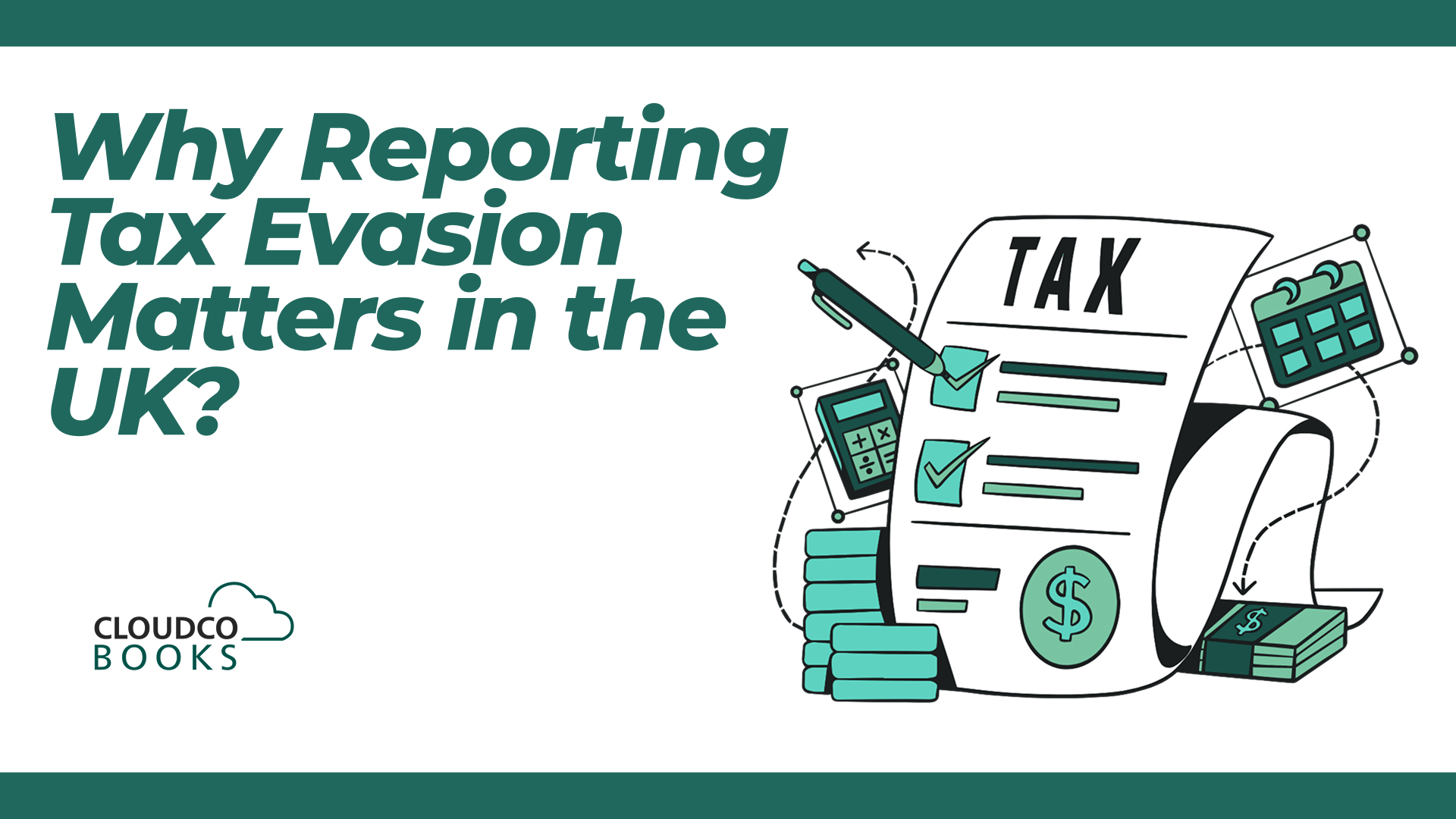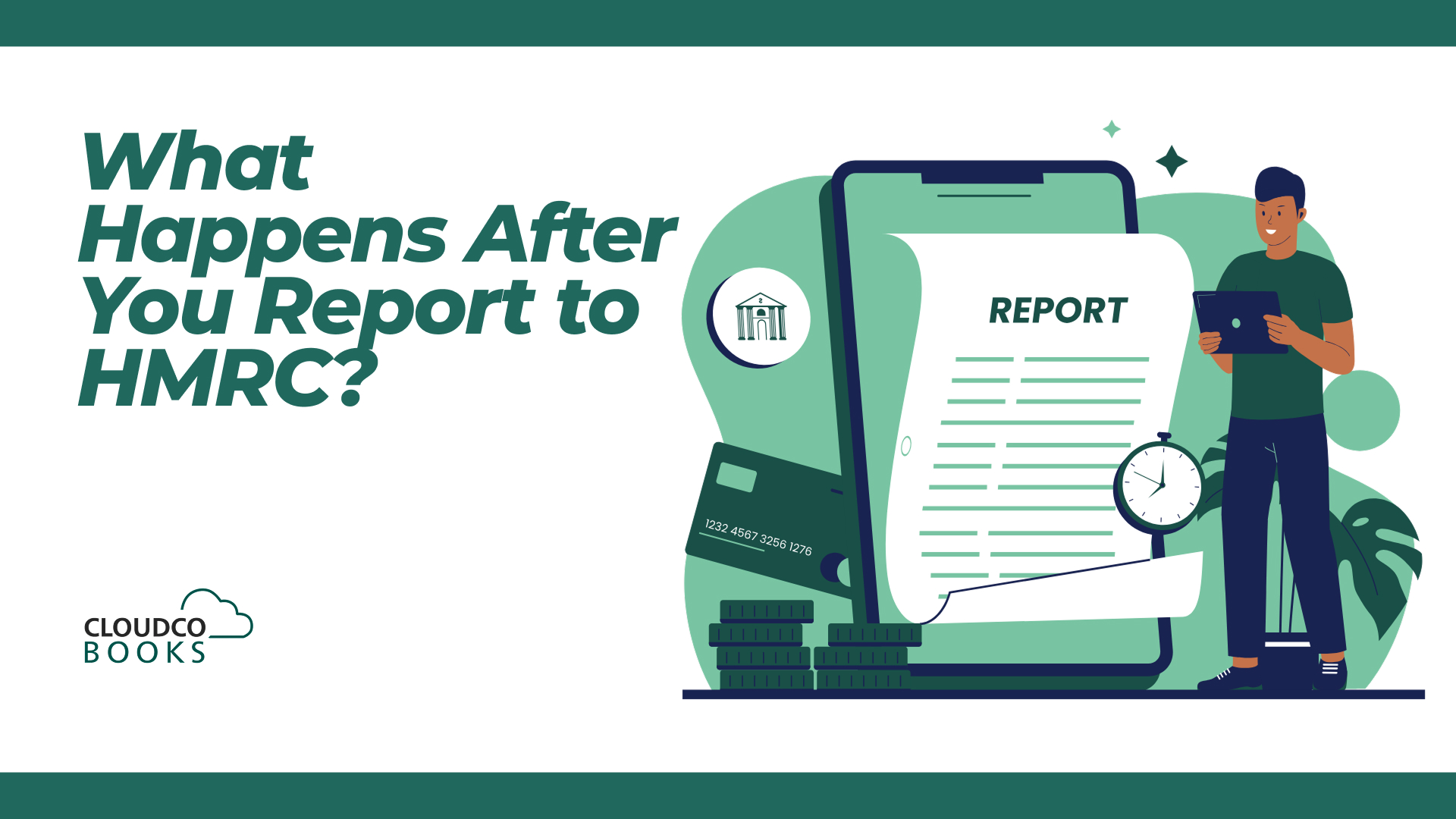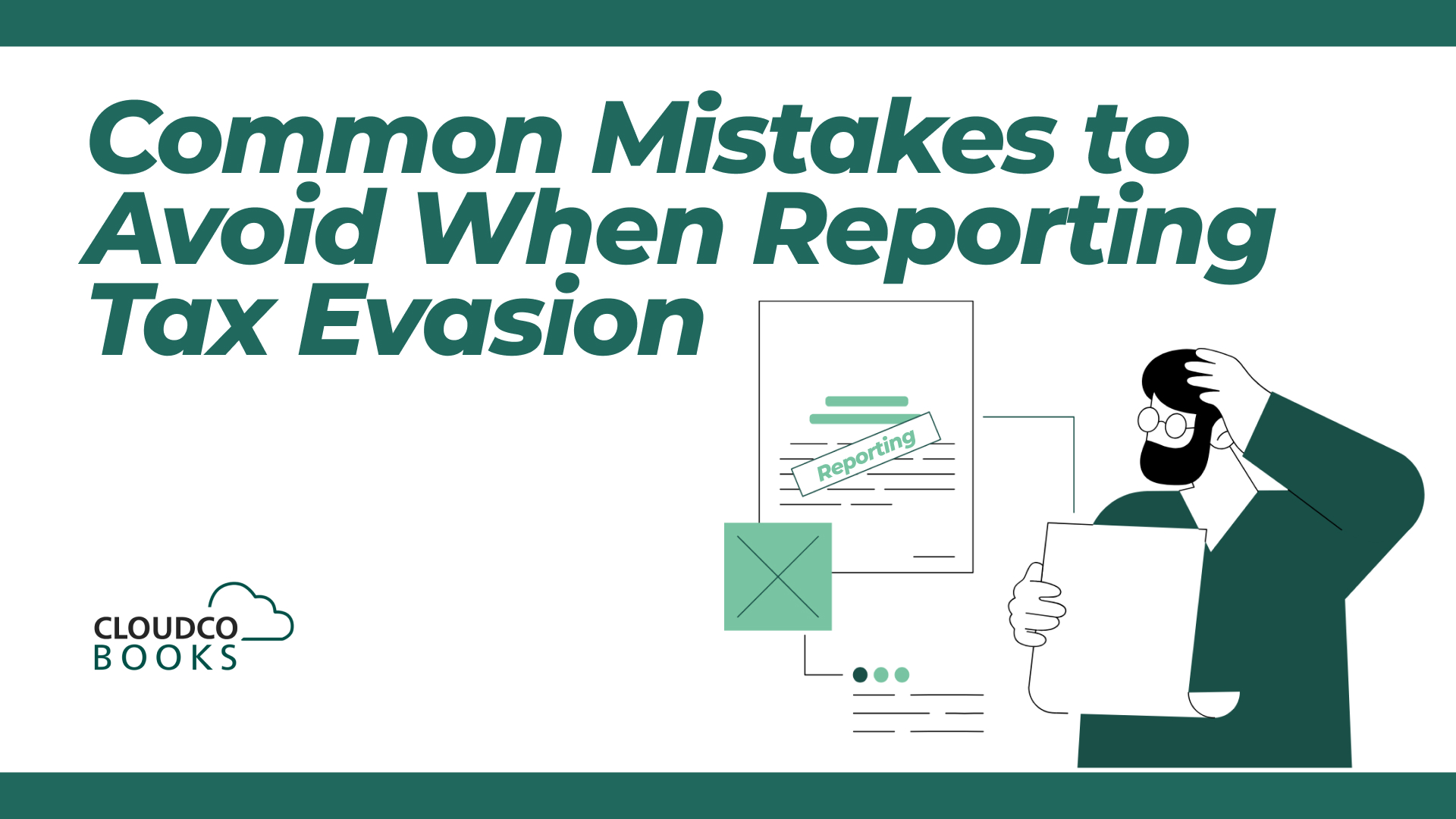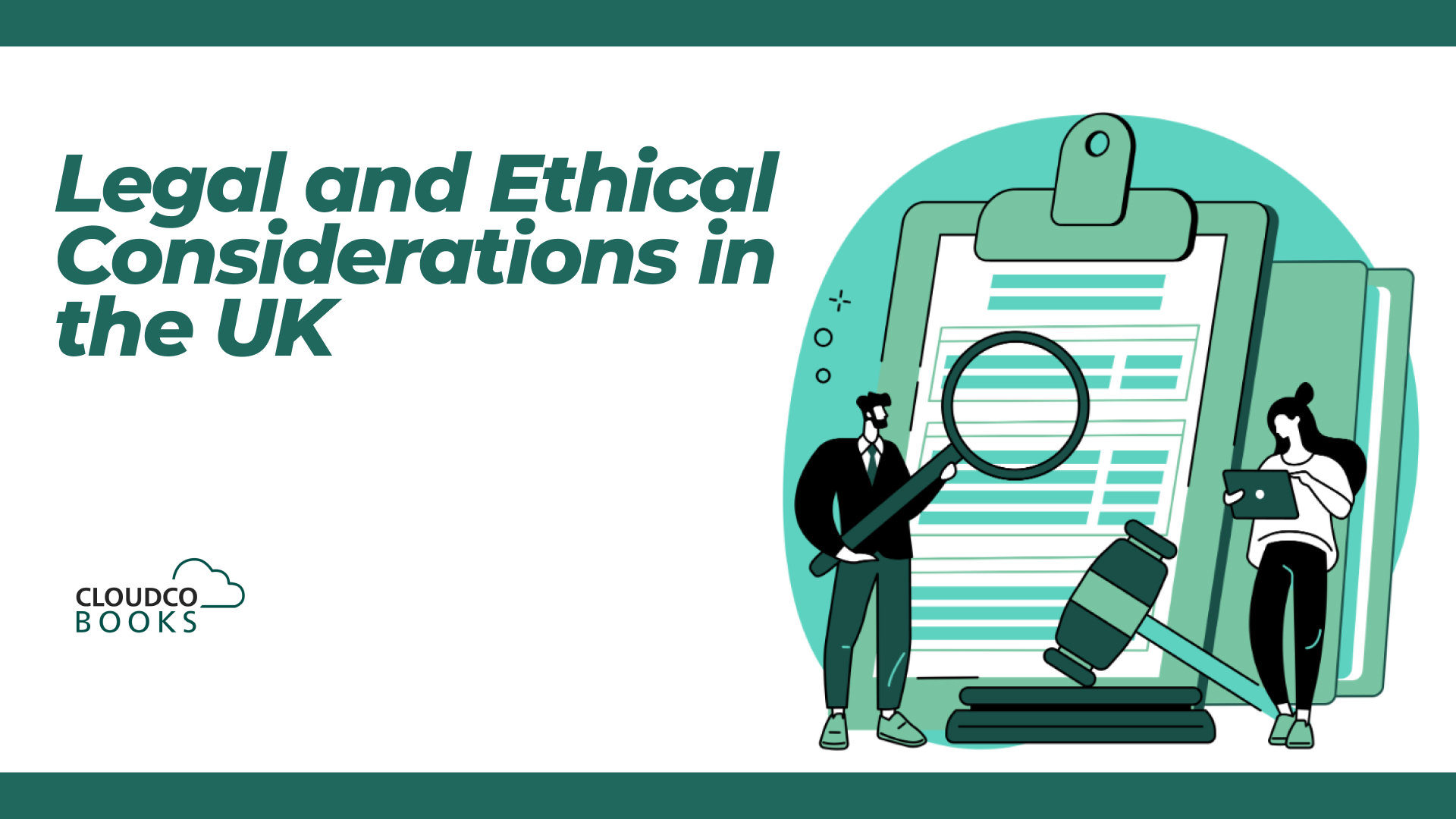Tax evasion isn’t just about unpaid bills. It’s about fairness. When individuals or businesses deliberately underreport income, hide assets, or falsify records, they deprive the UK of vital funds that support schools, hospitals, transport, and local communities.
The good news? You don’t have to look the other way. In the UK, HM Revenue & Customs (HMRC) has made it straightforward and confidential to report suspected tax evasion. Whether you’re a concerned citizen, an employee, or a business partner, your report helps protect the integrity of the UK tax system.
In this detailed guide, you’ll learn how to report tax evasion safely and correctly, what evidence to prepare, what happens after you submit a report, and how professionals like Cloud Co Book can guide you through the process.
Why Reporting Tax Evasion Matters in the UK?

Every year, HMRC estimates that billions of pounds are lost to tax evasion and fraud, money that could otherwise fund essential public services. While HMRC’s compliance teams are highly skilled in detecting tax fraud, tips from the public play a vital role in identifying offenders who might otherwise slip through the cracks.
Reporting tax evasion isn’t about revenge or whistleblowing for personal benefit. It’s about upholding fairness, transparency, and accountability. When honest taxpayers and businesses pay their fair share, it ensures a level playing field across the economy.
Each accurate report helps HMRC build cases, detect patterns of non-compliance, and bring offenders to justice, protecting the UK’s public purse for everyone’s benefit.
How to Report Tax Evasion (Step-by-Step Guide for the UK)
Reporting tax evasion in the UK is relatively simple, but it must be done carefully and responsibly. Here’s a step-by-step guide to ensure your submission is effective and compliant.
Step 1: Gather the Right Information
Before contacting HMRC, collect as much reliable information as possible. This might include:
- Full name and address of the person or business involved
- Details of the suspected activity (e.g. cash-only work, false invoices, undeclared income)
- Dates, transaction amounts, or business records (if known)
- Supporting evidence such as receipts, bank statements, or contracts
Stick to verifiable facts, not assumptions or hearsay. HMRC can only act on evidence-based information, not speculation.
Step 2: Report to the Correct Authority (HMRC)
In the UK, all tax evasion and fraud reports go directly to HMRC’s Fraud Investigation Service.
You can report in one of three ways:
- Online: Use the official GOV.UK tax evasion reporting form.
- By Phone: Call the HMRC Fraud Hotline on 0800 788 887 (open Monday to Friday, 8 am to 8 pm).
- By Post: Write to HMRC Fraud Hotline, Cardiff, CF14 5ZN.
Do not share accusations on social media or discuss them publicly; this can breach privacy laws and undermine investigations.
Step 3: Decide Whether to Stay Anonymous
HMRC gives you the choice to report anonymously or confidentially:
- Anonymous reports mean your name and contact details are not recorded or shared.
- Confidential reports allow HMRC to contact you if they need further clarification, but your identity is still protected under the Data Protection Act 2018.
If you’re reporting an employer, colleague, or client, confidentiality may be the safest option. HMRC will never reveal the identity of a tipster.
Step 4: Submit Your Report
Be clear, factual, and concise. Include:
- What happened
- When and where it occurred
- How did you find out about it
- Why do you believe it’s a breach of tax law
Avoid emotional language or personal opinions; HMRC focuses on facts and evidence. If submitting online, you can print or save a copy of your submission for your records.
Step 5: Keep Notes and Wait Patiently
Once your report is received, HMRC reviews it for credibility and supporting evidence. If your information is helpful, it may trigger an audit or a full investigation.
Due to strict confidentiality rules, HMRC will not update you about the progress or outcome. However, every credible report helps build stronger compliance systems and deters future evasion.
How Cloudco Books Can Help?

If you’re uncertain about how to prepare your documents or whether your information meets legal and ethical standards, Cloud Co Book can help.
Our team of experienced UK accounting professionals assists individuals and businesses in organising financial records, verifying compliance, and preparing documentation that aligns with HMRC’s standards.
By consulting Cloud Co Book before submitting your report, you ensure your evidence is accurate, compliant, and presented clearly, helping HMRC take your report seriously while reducing your personal risk.
What Happens After You Report to HMRC?

After HMRC receives a report:
- Investigators cross-check your information against tax records and databases.
- If credible, they may open a compliance case or complete an audit.
- In severe cases, HMRC’s Fraud Investigation Service may pursue criminal prosecution or financial penalties.
This process can take time, often several months or longer, and HMRC typically won’t contact you. Still, your report contributes directly to protecting the integrity of the UK’s tax system.
Does the UK Offer Whistleblower Rewards?

Unlike the United States or Canada, the UK doesn’t have a formal tax whistleblower reward programme. However, HMRC may offer discretionary payments in rare cases where the information provided results in significant tax recovery.
If you’re considering a whistleblower claim, always seek professional advice before proceeding. Cloud Co Book can help you understand your options and ensure your information is handled correctly.
Common Mistakes to Avoid When Reporting Tax Evasion

To make sure your report is taken seriously, avoid these common pitfalls:
- Submitting reports based on rumours or personal disputes
- Confusing tax avoidance (legal tax planning) with tax evasion (illegal non-payment)
- Providing incomplete or unclear details
- Sharing confidential or company information without authorisation
- Expecting immediate feedback or results
Accuracy, clarity, and patience are key to making your report effective.
Legal and Ethical Considerations in the UK

Reporting tax evasion is a responsible act, but it must be done ethically and lawfully. Submitting false or malicious reports is itself a serious offence.
Before making a report, ensure:
- You have a factual basis for your concern.
- Your information was obtained legally.
- You’re acting in good faith, not for personal revenge.
Integrity matters, both in taxation and in holding others accountable.
